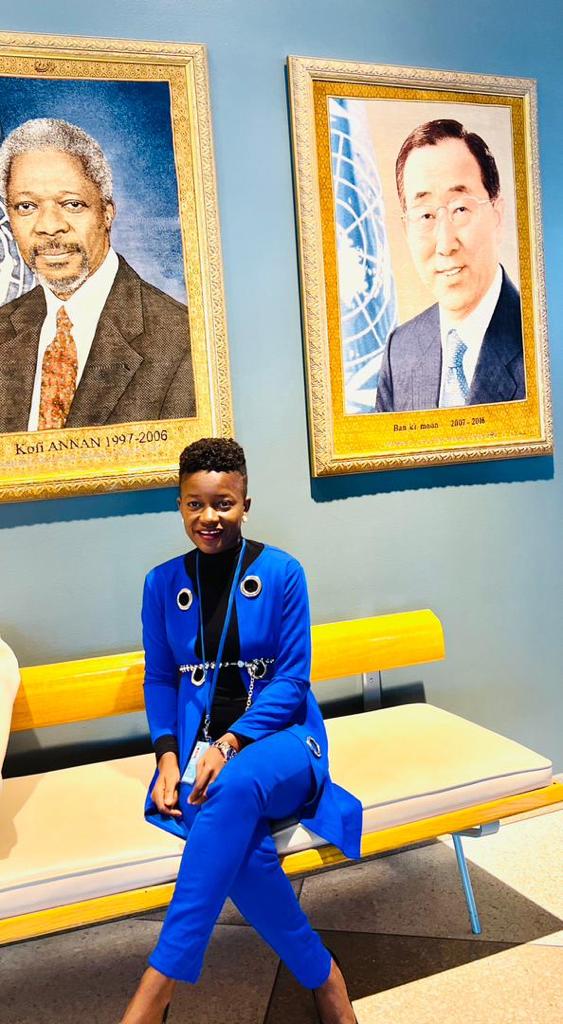In two of the sessions of the 67th Session of the Commission of the Status of Women (CSW) at the United Nations headquarters in New York, on 13th and 14th March 2023, Margaret Davies narrated her story of sexual harassment to the International Development Law Organization (IDLO) and the World Bank respectively.
The victim admitted that sexual harassment was never easy to talk about, but that she was “…sharing [her] story to raise awareness particularly so when people from all around the world converged to discuss the status of women and most importantly to provide comfort and support to those who have experienced it”.
she noted that, “As the theme for this year’s CSW talks about ‘using Innovation and Technology in achieving gender equality and women’s empowerment’; sexual harassment is one of the challenges women are faced with in the digital world. I believe such a theme aims to emphasize the importance of technology and innovation in bringing gender issues to light as a new generation of women has now emerged who want to speak up and be heard on issues of their status”.
In her speech, she narrated her experience of sexual harassment with her former boss at the Rokel Commercial Bank, owned by the Government of Sierra Leone, stating the challenges she had faced as a female victim of sexual harassment in the workplace.
She spoke on the psychosocial, medical and economic effects of sexual harassment.She regrettably noted that while most governments worldwide were seen as partners in the fight against all forms of Gender-Based Violence (GBV), including sexual harassment, the state apparatuses in Sierra Leone appeared to be condoning sexual harassment.
Given this background, she emphasised that sexual harassment was now an urgent issue that must be addressed and prioritised by a multi-sectorial response with an evidence-based approach before it becomes a pandemic. “As we renew our commitment to promote gender equality and women’s empowerment, let us also strongly condemn sexual and other workplace harassment by working together to create a society where women can be given equal opportunity. Therefore, in promoting gender equality and women’s empowerment in the digital age, we must (as a priority) educate ourselves about the impact of sexual harassment and the steps we can take to prevent it”, she averred.
Mrs. Davies admonished all to come together to create a safe working environment by supporting vulnerable women who are suffering in silence. Women, she said, “cannot maximize their full potential when men in positions of authority are harassing them,” and they [women] “cannot speak out for fear of retaliation”. She urged all to “…develop a culture of listening to victims and support survivors for those who have experienced it are better placed to contribute to gender policies”.
Mrs. Davies also narrated how people often talk about terrorists who use weapons to harass women in other parts of the world but forget to hold accountable well-suited white-collar sexual terrorists in workplaces. “There is only one way to fight workplace sexual terrorists”, she said, “and that is by working with local partners and listening to victims (because he who feels it knows it better) to create a culture of respect for women and equality and a world where every woman is safe.”
She, therefore, called on international organisations, civil societies, and other human rights groups to collaborate and stop being selective in the fight against all forms of GBV. She stressed that in doing so, perpetrators of sexual harassment would be held accountable for their actions and victims and/or survivors would be provided support and resources. Throughout her speech, she reiterated that women deserve equal opportunity and participation in the workplace to maximize their full potential.
In conclusion, she stated that, “it is time to change the narrative and the culture of impunity and power dynamics and therefore urged the World Bank to use her story as a case guide to inform their policies and interventions at country and international levels”. She called on multilateral development partners to support and promote women’s right to equal opportunity and a world free from harassment and discrimination. She noted that if the United Nations’ Sustainable Development Goal of achieving gender equality and women’s empowerment by 2030 was to be met, victims/survivors of SGBV should be given attention and the resources to speak up and recount their story without fear of reprisals and state’s complicity.
Mrs. Davies, in closing, informed the audience that her legal team was considering several options, which included international action against the Republic of Sierra Leone, and therefore requested for partnership with the IDLO (whose vision is to create a world in which every person lives with dignity and equality under the rule of law) and urged the World Bank to follow up on the complaint and actions taken by the Bank of Sierra Leone.
After her presentation, the victim was invited by different international groups present with whom she had fruitful deliberations.
The Nationalist newspaper will continue to give updates on this issue and other issues as we all strive towards a world free from discrimination and other forms of SGBV.


